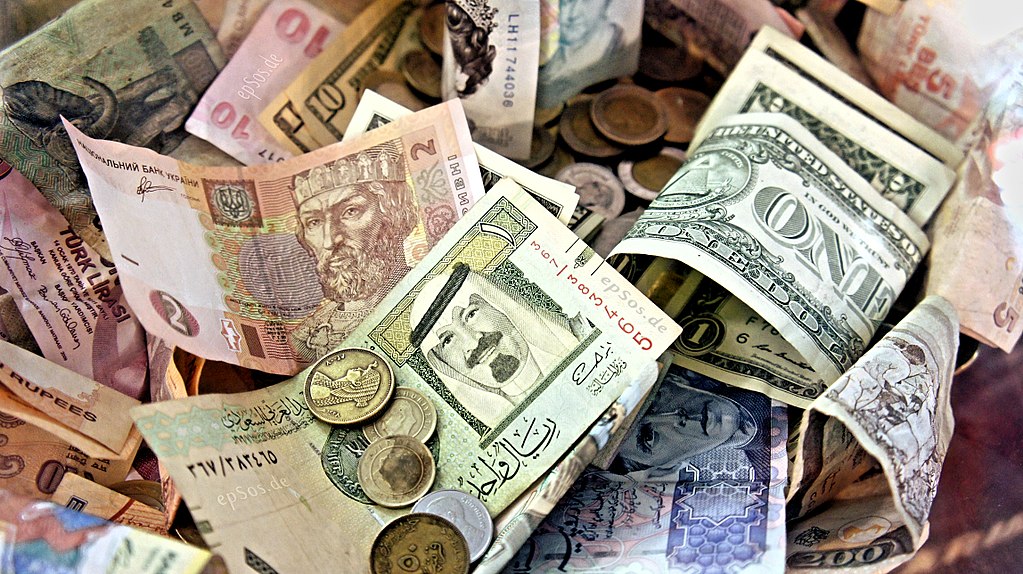Together with his colleague, he compared the growth rates of GDP and stock indexes of leading developed and developing countries from the end of 2007. The American S&P 500 grew by 76%, more than 10 percentage points ahead of the stock market of India. Meanwhile, the economy of the latter for the same period jumped by 89% against 14% in the United States. China's GDP has more than doubled, while the stock market fell by 35%.
The Russian economy has grown by just 6.5% in a decade, slightly ahead of the Japanese one, but in their stock markets are displaying quite a different picture: the RTS fell by 50%, and the Nikkei grew by 46%.
The ways of the economy and markets have parted not only in large developing countries. The aggregate GDP of developing countries almost doubled over the decade (average annual growth of 6.6%), according to the IMF, yet the MSCI Emerging Markets index grew at the same time at a slower magnitude - an average of 0.6% per year.
Of course, each market has its own peculiarity. In Chinese, the bubble peaked at the end of 2007 (the Shanghai Composite Index began to fall from around 6,000 points in October of that year), and eight years later, another bubble swelled and burst. Therefore, now the Shanghai Composite is trading around 3,400. The Russian dollar RTS index fell behind other markets due to devaluation, but the ruble MICEX closed at 2130.4 points on Monday, whereas before the crisis of 2008 it could not overcome 2000 points. The Japanese Nikkei repeatedly disappointed investors who had hoped that the "bear" era is coming to an end. Now it seems that it turned into a bullish trend, in large part thanks to the Bank of Japan, which pumped up the economy with money, notes Eoin Treacy, co-publisher of the investment bulletin Fuller Treacy Money.
However, in general, the thesis that faster economic growth accelerates the growth of stocks that supported the "bullish" super cycle in emerging markets before the 2008 crisis, stopped working. This is largely due to the fact that the monetary policy of the leading central banks has created incentives for the growth of developed markets. The pace of GDP growth in many developing countries has fallen compared to the last decade, and Russia and Brazil have in general outlasted a two-year recession largely due to a fall in commodity prices.
The chief economist of RBC Global Asset Management, Eric Laselles, lists several other reasons. Governments in developing countries as a whole are more involved in the economy, and corporate governance is worse there. This can deter investors from these markets, especially in times of instability and uncertainty that characterize the post-crisis period.
In addition, he notes, in the markets of developed countries, many shares of international companies are traded, benefiting from rapid economic growth in developing countries.
source: wsj.com
The Russian economy has grown by just 6.5% in a decade, slightly ahead of the Japanese one, but in their stock markets are displaying quite a different picture: the RTS fell by 50%, and the Nikkei grew by 46%.
The ways of the economy and markets have parted not only in large developing countries. The aggregate GDP of developing countries almost doubled over the decade (average annual growth of 6.6%), according to the IMF, yet the MSCI Emerging Markets index grew at the same time at a slower magnitude - an average of 0.6% per year.
Of course, each market has its own peculiarity. In Chinese, the bubble peaked at the end of 2007 (the Shanghai Composite Index began to fall from around 6,000 points in October of that year), and eight years later, another bubble swelled and burst. Therefore, now the Shanghai Composite is trading around 3,400. The Russian dollar RTS index fell behind other markets due to devaluation, but the ruble MICEX closed at 2130.4 points on Monday, whereas before the crisis of 2008 it could not overcome 2000 points. The Japanese Nikkei repeatedly disappointed investors who had hoped that the "bear" era is coming to an end. Now it seems that it turned into a bullish trend, in large part thanks to the Bank of Japan, which pumped up the economy with money, notes Eoin Treacy, co-publisher of the investment bulletin Fuller Treacy Money.
However, in general, the thesis that faster economic growth accelerates the growth of stocks that supported the "bullish" super cycle in emerging markets before the 2008 crisis, stopped working. This is largely due to the fact that the monetary policy of the leading central banks has created incentives for the growth of developed markets. The pace of GDP growth in many developing countries has fallen compared to the last decade, and Russia and Brazil have in general outlasted a two-year recession largely due to a fall in commodity prices.
The chief economist of RBC Global Asset Management, Eric Laselles, lists several other reasons. Governments in developing countries as a whole are more involved in the economy, and corporate governance is worse there. This can deter investors from these markets, especially in times of instability and uncertainty that characterize the post-crisis period.
In addition, he notes, in the markets of developed countries, many shares of international companies are traded, benefiting from rapid economic growth in developing countries.
source: wsj.com





